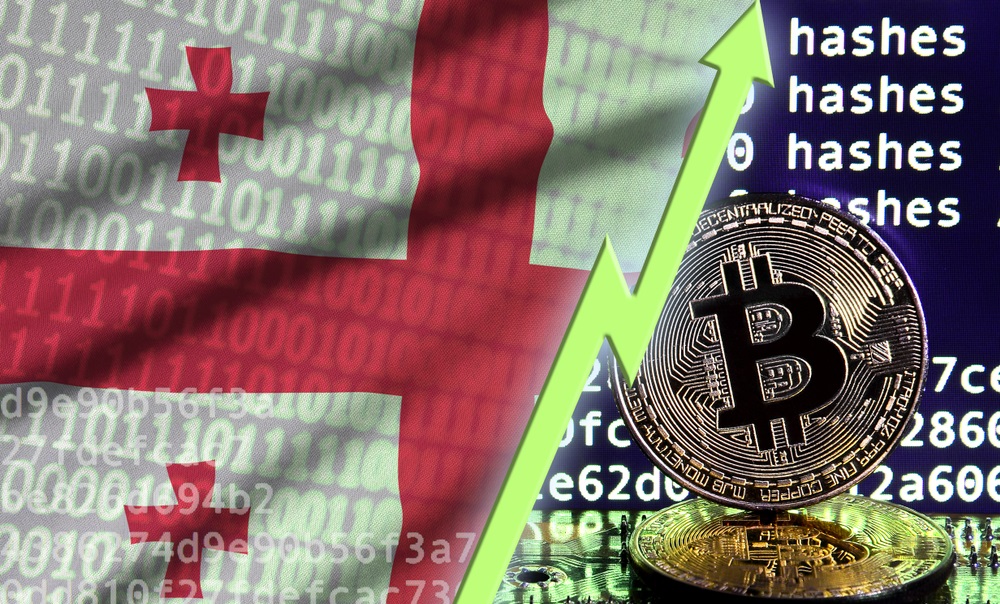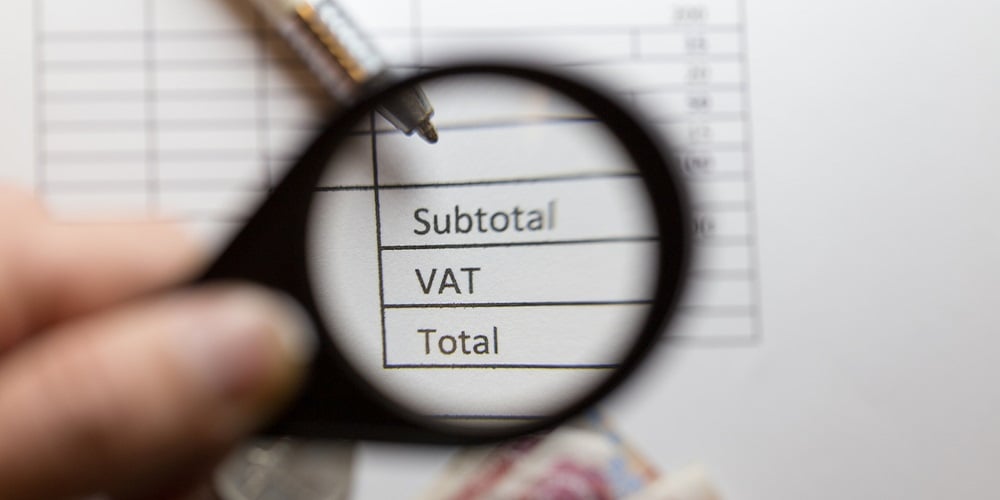
Cryptocurrency taxation is a subject that concerns a growing number of users, traders and investors. An area that creates a lot of confusion among taxpayers is the application of VAT, or the value-added tax most countries levy on the sales of goods and services. Georgia has become the latest nation to free crypto-fiat transactions from VAT, a decision that affirms Bitcoin’s status as a currency. The same has already happened in many other jurisdictions, despite the absence of comprehensive regulations.
Also read: Money Laundering Scandals Bring Court Charges and Record Job Cuts to Euro Banks
VAT-Free Crypto Exchange, No Income Tax for Traders
Traders of digital coins, both companies and individuals, will not owe VAT to the government in Tbilisi. That’s according to a newly adopted bill aimed at regulating the taxation of entities that trade or mine cryptocurrencies. The law was recently signed by Georgia’s finance minister Nodar Khaduri and entered into force at the end of June. The document provides a legal definition for decentralized digital money:
Cryptocurrencies are digital assets that are exchanged electronically and based on a decentralized network. Their exchange does not require a reliable intermediary and they are managed using distributed ledger technology.
From now on, residents of the South Caucasian republic exchanging coins to local or foreign fiat currency will not be obliged to pay the value-added tax. Furthermore, private citizens who conduct such transactions will also be spared from income tax. Khaduri stressed that the national currency, the Georgian lari, will remain the only legal tender in the country and using cryptocurrencies for payments will not be allowed. But that’s valid for any foreign currency as well.

Mining companies will have to pay VAT unless they are registered abroad. Georgia, which offers abundant and cheap electrical energy generated by its many hydropower plants, has become a regional mining hotspot over the past few years. Now many companies from the industry are likely to relocate their official headquarters to offshore zones while maintaining their operations in the Caucasus.
Europe Considers Bitcoin a Currency for VAT Purposes
So far, European countries have been trying to regulate cryptocurrencies almost in a decentralized manner. Bitcoin is often treated differently by tax authorities in various EU member states and elsewhere on the continent. Germany, for example, considers the purchase of digital assets an investment but capital gains tax is due only if the coins are held for less than a year.
For many practical purposes, the United Kingdom treats cryptos like foreign currencies. Residents of Bitcoin-friendly Switzerland are expected to pay income and profit tax on their digital cash holdings. Estonia applies capital gains tax on the profit from crypto investments while Slovenia does not tax the gains of individual cryptocurrency traders.

Generally, purchases and sales of cryptocurrency are not subject to VAT taxation in Europe, which is the birth place of the value-added tax. Financial regulators and revenue services in most countries often refer to a decision by the Court of Justice of the European Union (ECJ) which ruled in 2015 that services for the exchange of bitcoin with any traditional fiat currency are exempt from VAT.
Despite the absence of a common European approach towards cryptocurrencies in terms of VAT taxation, the topic has been discussed by the VAT Committee of the European Commission on several occasions. Different proposals on the treatment of digital assets for VAT purposes have been reviewed by the advisory body which provides clarifications on EU’s VAT Directive. These proposals include the classification of Bitcoin as currency, electronic money, negotiable instrument, security, or digital product.
Since the ECJ ruling, the case for accepting bitcoin as a currency has been gaining ground in the light of applicable VAT regulations. In essence, the court decided that the exchange between virtual and traditional currency constitutes the supply of services which are exempt from VAT under Article 135(1)(e) of the VAT Directive.
VAT Is the Cash Cow of Many Governments
Value-added tax (VAT) is a widely implemented indirect tax based on the increase in value of a product or service until it reaches the market. It is collected by retailers from end users and, in most cases, in the jurisdiction where these products and services are consumed. It’s usually a flat rate charged on the final value of the sold goods or provided services.
VAT is an important income source for many governments around the world. Well over 160 nations employ the tax and in certain countries like France it accounts for around half of the state budget receipts. It is generally considered fairer than the sales tax used in the U.S., for example, which can potentially be charged on itself as it is applied at each stage of production and distribution.

Wrapping one’s head around extensive VAT regulations can be a difficult task for many businesses and those in the crypto industry are no exception. But companies need to do so, as when they are registered under VAT laws they are entitled to apply for tax credit for the VAT amounts paid on the value of the materials and services used during production. The mechanism presents an opportunity to get some money back from the government.
Crypto-Related Services Pose a Challenge to VAT Rules
The ECJ ruling led to the issuance of additional interpretations by the VAT Committee that have no legal effect but can nevertheless be used as a reference by national authorities dealing with matters related to the VAT treatment of cryptocurrencies. One of them suggests that no VAT should be charged on the value of the digital coins themselves when they are used as a means of payment.
VAT is due, however, on the value of goods and services purchased with cryptocurrency. Their supply should be treated in the same way as taxable supplies of goods and services paid with fiat currencies. The taxable amount in such transactions should be the one received by the supplier. And if it is denominated in cryptocurrency, the tax should be paid on the equivalent expressed in the national currency of the respective EU member state at the time of the transaction.
Although these suggestions, detailed in a recently published article by PWC Cyprus, provide many answers pertaining to the VAT treatment of crypto transactions, important questions remain unanswered. And these are actually very hard to answer. For example, how do you define the appropriate exchange rate when reporting the value of a crypto transaction in fiat money?

According to the VAT Directive, if bitcoin is viewed as a foreign currency that could be either the latest rate recorded on “the most representative exchange market” of the member state or the latest official exchange rate published by the European Central Bank (ECB). The VAT Committee provides a third option as well: “the open market value of the virtual currency, determined under the responsibility of the taxpayer.”
Neither of these alternatives, however, are directly applicable to cryptocurrencies without more questions. First of all, there’s no central bank publishing a daily spot price for bitcoin. Second, cryptos are often exchanged on a global platform that may not necessarily be the most representative for a particular country. And third, how do you determine the abstract “open market value” of a volatile digital asset without selling it?
Other aspects of VAT taxation in the case of cryptocurrency transactions that the VAT Committee has attempted to clarify include the provision of wallet and exchange services as well as the verification of crypto transactions through mining. For instance, free wallet services are exempt from taxation but the advisory body believes that when providers charge fees, they should fall within the scope of VAT, just like Swift services offered by traditional banks. As for exchange services, they are exempt from VAT when the supplier buys and sells the coins as a principle owner. But where a platform acts as an intermediary between buyers and sellers and charges a fee for their access to its virtual marketplace, these services are subject to VAT.
Things are much more complicated with crypto mining. On the one hand, until miners are rewarded with newly minted coins, transaction fees are in principle paid voluntarily. That means they are still outside the scope of VAT. On the other hand, fees are paid in most cases anyway, as wallets usually have them as a default option and users are not willing to wait too long for their transaction to be processed. Currently, the European Commission’s VAT Committee supports the view that mining is an “essential activity for the actual transfer of funds,” which is closely related to the supply of digital coins and is not a support service. Hence, crypto transaction fees should not be subject to VAT.
What’s your opinion about the applicability of the VAT regime in regards to crypto-related transactions? Share your thoughts on the subject in the comments section below.
Images courtesy of Shutterstock.
Do you need a reliable Bitcoin mobile wallet to send, receive, and store your coins? Download one for free from us and then head to our Purchase Bitcoin page where you can quickly buy Bitcoin with a credit card.
The post Georgia Exempts Bitcoin From VAT to Become the Next Country to Affirm Its Currency Status appeared first on Bitcoin News.
via Lubomir Tassev
0 comments:
Post a Comment